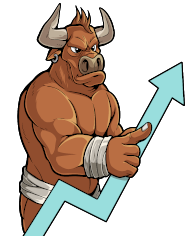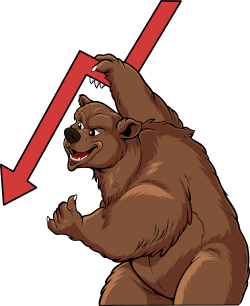SCHWCharles Schwab Corp.
Company Overview
Name
52W High
52W Low
Market Cap
Dividend Yield
Price/earnings
P/E
Tags
Dividends
No dividend
Sentiment
Score
Bullish
69
Low
Neutral
High
0
50
100
Trade Volume
Score
Neutral
50
Low
Neutral
High
0
50
100
Income Statement
Total Revenue
Operating Revenue
Total Gross Profit
Total Operating Income
Net Income
EV to EBITDA
EV to Revenue
Price to Book value
Price to Earnings
Additional Data
Investment Securities Interest Income
Total Interest Income
Long-Term Debt Interest Expense
Total Interest Expense
Net Interest Income / (Expense)
Other Non-Interest Income
Earnings History
Estimated EPS
Reported EPS
N/ACompany Overview
Name
52W High
52W Low
Market Cap
Dividend Yield
Price/earnings
P/E
Tags
Dividends
No dividend
Sentiment
Score
Bullish
69
Low
Neutral
High
0
50
100
Trade Volume
Score
Neutral
50
Low
Neutral
High
0
50
100
Income Statement
Total Revenue
Operating Revenue
Total Gross Profit
Total Operating Income
Net Income
EV to EBITDA
EV to Revenue
Price to Book value
Price to Earnings
Additional Data
Investment Securities Interest Income
Total Interest Income
Long-Term Debt Interest Expense
Total Interest Expense
Net Interest Income / (Expense)
Other Non-Interest Income
Earnings History
Estimated EPS
Reported EPS
N/AUpcoming Earnings
Company Info
CEO
Walter W. Bettinger
Location
Texas, USA
Exchange
NYSE
Website
https://schwab.com
Summary
Charles Schwab Corporation provides retail brokerage, investment advisory, banking and trust, retirement plan, and other corporate brokerage services.
Company Info
CEO
Walter W. Bettinger
Location
Texas, USA
Exchange
NYSE
Website
https://schwab.com
Summary
Charles Schwab Corporation provides retail brokerage, investment advisory, banking and trust, retirement plan, and other corporate brokerage services.
Community Research
Research from investors like you
Be the first to share your analysis on SCHW
Help fellow investors make informed decisions by sharing your research on fundamentals, catalysts, and outlook.
Symbol's posts
Global stocks are beating the S&P 500 by the widest margin since 1995
Global stocks are beating the S&P 500 by the widest margin since 1995

finance.yahoo.com
| The S&P 500 Trails the Global Stock Market by Its Widest Margin Since 1995 as President Trump's Policies Rattle Investors
Market recap: Hot jobs report, earnings misses from Mattel and HOOD, and software stocks
Market recap: Hot jobs report, earnings misses from Mattel and HOOD, and software stocks
:max_bytes(150000):strip_icc()/GettyImages-2229461465-9128a43eb18340ec8df5197b2ef69351.jpg)
www.investopedia.com
| Stock Market Today: Futures Little Changed Ahead of Delayed January Jobs Report
Big U.S. Banks Accelerate Crypto Adoption as Institutional Interest Grows
Big U.S. Banks Accelerate Crypto Adoption as Institutional Interest Grows
Big banking momentum is building as major U.S. banks expand quarterly crypto services and advisory coverage. is now advising wealth management clients to allocate up to 4% of their portfolios to digital assets and has initiated coverage on multiple ETFs. followed by filing for both and ETFs, signaling deeper institutional engagement. At the same time, , , and are scaling up crypto trading and custody offerings, while has resumed custody for institutional asset managers, citing improved regulatory clarity. On the corporate side, crypto exposure is also rising, with mining and infrastructure names like seeing positive market reaction. This shift suggests crypto is moving from an experimental allocation to a structured asset class within traditional finance, but is this the early stage of mass institutional adoption, or just cautious positioning?
Bitcoin ETFs end 2025 with $348M in outflows, price settles at $87.5k
Bitcoin ETFs end 2025 with $348M in outflows, price settles at $87.5k

finance.yahoo.com
| 2025 Ended in Red: Bitcoin ETFs Bled $348M on Final Trading Day
Is Schwab still the safest long-term brokerage stock after recent banking issues?
Is Schwab still the safest long-term brokerage stock after recent banking issues?
Rising rates definitely hurt the company's balance sheet in the short term, but still controls a lot of client assets. And the stock is still performing fine; do you think it is a good idea to increase my holdings in the stock?
Charles Schwab Corporation is set to acquire Forge Global Holdings, Inc. in a $600M deal
Charles Schwab Corporation is set to acquire Forge Global Holdings, Inc. in a $600M deal
just announced an agreement to buy which is a private market trading platform through which investors have transacted more than $17 billion in private company shares. This deal is valued at around $660 million. What do you think will happen to the stock price after the deal is complete?
Charles Schwab rolls out $20B share buyback while still keeping dividends
Charles Schwab rolls out $20B share buyback while still keeping dividends
just approved a new $20 billion buyback program. However, they confirmed their quarterly dividend of $0.27/share, which is payable August 22 to shareholders and the record date for the same is of August 8. I think this shows their confidence in growth and capital returns. Looks like a good buy.
No more topics to show







